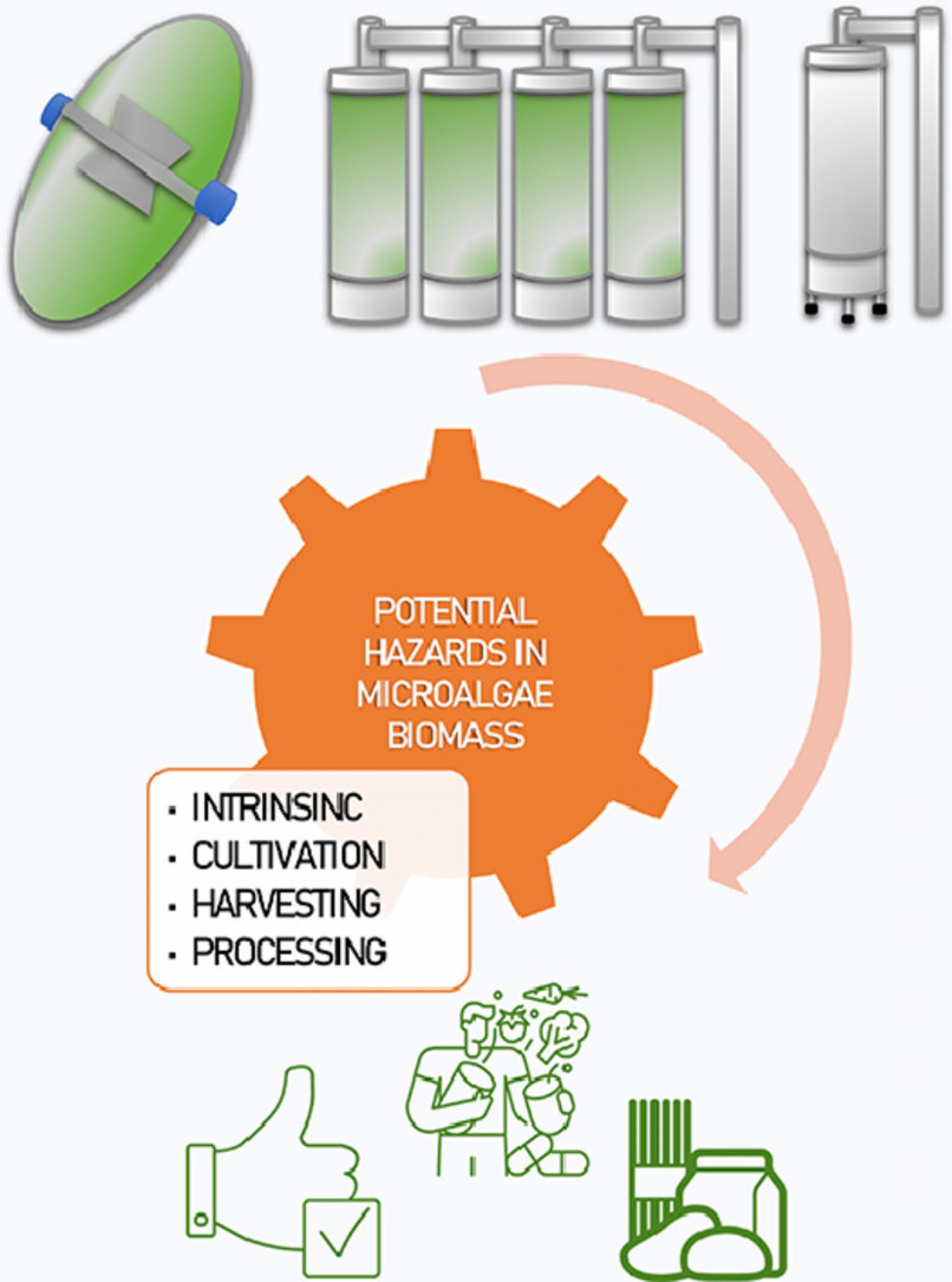
Microalgae biomass can offer several compounds beneficial to human nutrition, including lipids, proteins, minerals and pigments. In this sense, microalgae-based foods are already evident as opportunities for food research and development. Thus, the consumption of foods containing declared compounds from microalgae (e.g., omega 3/proteins) can be sold in the form of supplements and other innovative products, including chocolates and beverages. Furthermore, the production of microalgae brings advantages to global food security and reduces the impact considering environmental problems related to the expansion of food production in agricultural land. In this sense, the quality and safety of derivatives depend on good cultivation, harvesting and processing practices since unwanted organic and inorganic compounds may be present in microalgae biomass due to environmental contamination or processing steps. Moreover, this may pose a risk to human health, and it is essential for consumer protection that microalgae biomass be monitored for levels of residues and contaminants. The optimization of processes and knowledge of cultivation steps and their reagents are crucial for quality control. These aspects are discussed throughout this review, focusing on recent reports on potential microalgae-based food contaminants.
